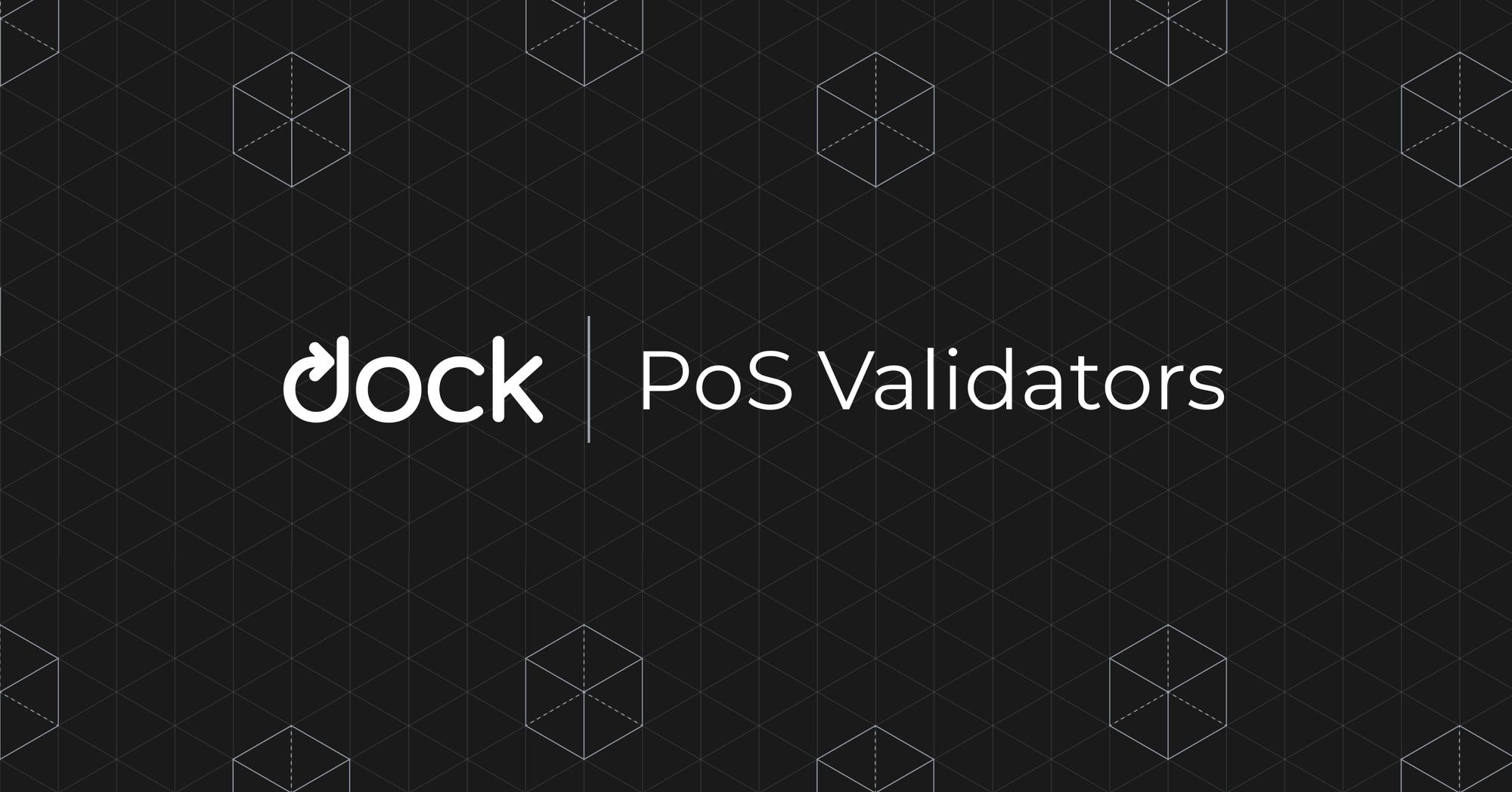We’re excited to share that the transition of the Dock blockchain to Proof of Stake (PoS) is expected to take place in June 2021. In preparation for this major milestone, the team is now actively seeking parties that are interested in participating in the PoS network as a validator.
In charge of producing blocks (processing transactions) and validating blocks produced by other validators, Dock validators form an integral part of the Dock ecosystem. Validators will earn token rewards for participating in the network. Before we get into what this step means for validators, it would be remiss not to mention what this milestone means for the entire Dock community.
Of course, transitioning to Proof of Stake, or Nominated Proof of Stake (NPoS) to be precise, provides more than a new way for Dock nodes to agree on the state of the network. It introduces profound and fundamental changes to the network and the Dock ecosystem. Firstly, once NPoS is incorporated into the Dock mainnet, the network will become more decentralized. The number of validators will increase from the current 11, to potentially several hundred candidates all competing for the 50 slots, and these validators will not be chosen by Dock - rather, they will be selected by the network based on how much stake the validator has accumulated.
Furthermore, this hugely important milestone will further decentralize governance of Dock as community members will now be able to make and vote on proposals, as well as vote on candidates they wish to oversee the ongoing management of the network on the Dock Council. This blog post articulated our plans for decentralized governance, and it is recommended for the additional context it provides while also showing the evolution the network has undergone since the mainnet was launched in September of 2020.
How It Works
The individuals interested in serving as Dock validators should contact our team by emailing us at marketing@dock.io or reaching out to us via social media. When NPoS begins, the candidate validators will be able to stake (lock up) their own tokens, and/or be nominated by other token holders (nominators), who can back candidates by locking tokens on the candidates’ behalf. The network algorithm will automatically choose candidates with the most stake to become validators. There can be at most 50 validators at any given time.
As the validators produce and validate blocks, they (along with their nominators) will earn rewards in the form of Dock tokens. After each epoch (10 days), 40% of the rewards, consisting of emission rewards and transaction fees, will be distributed among validators based on their contributions in that epoch. Then for each validator, the network will divide up the rewards among the validator and their nominator(s) according to the validator’s commission and how much they have staked compared to one another.
Each year Dock will release at most 25% of the remaining token supply as emission rewards. The release schedule for the next 25 years, as well as further details about the validator selection and rewards, can be found in our token economics documentation. General information about the Dock network’s ecosystem, token utility, governance, and consensus can be found here.
How to Get Started
Any cloud provider can be used to run a Dock node cost at minimal expense. The technical requirements for validators are as follows:
- 1 or 2 publicly accessible machines
- At least 4 GB of RAM
- At least 50 GB of SSD
- Bandwidth of 10 Mbps over WAN
- Some familiarity with provisioning machines (either cloud or on-prem) and some familiarity with Linux command line is needed to run the provided scripts to generate keys and deploy node. Dock currently supports Ubuntu 18.04.
If you’d like to participate as a validator, please contact us by any of the following channels so that we can keep you updated with the latest information:
- Email: marketing@dock.io
- Twitter: @docknetwork
- Riot: Join the chat here
We will run a testnet in the first instance, and our plans are to launch NPoS on the Dock mainnet in June 2021, further to a successful security audit. At this point the validators will be able to start earning rewards.

